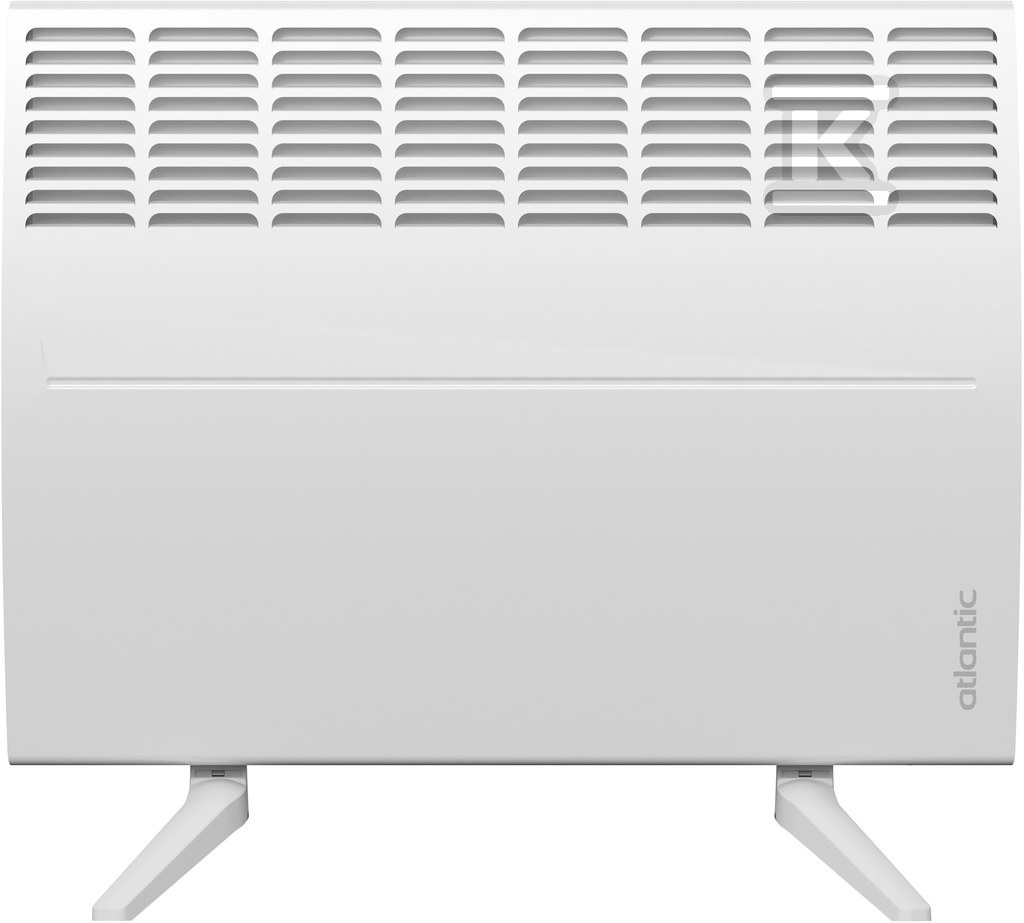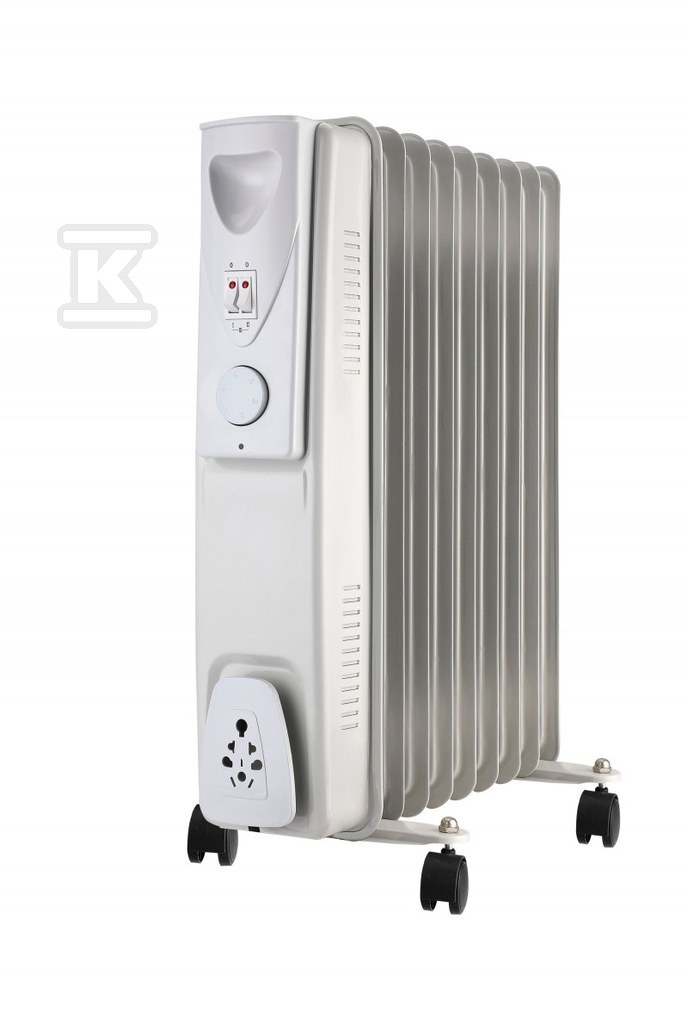Electric radiators in the bathroom are a good solution, very functional and easy to install, which can quickly provide pleasant warmth. That is why they are especially useful in rooms where there is no central heating, but also as an additional source of heating, especially in the colder months. Despite these advantages, it is worth remembering the disadvantages, such as operating costs or potential dangers related to moisture. So before we choose this solution, let's get to know its strengths and weaknesses!

Check out electric heaters at the Onninen wholesaler
When will electric radiators be useful in the bathroom?
There is no doubt that the bathroom is a place where there is never too much heat. It is not only about comfort, but also about eliminating moisture. It can be a real nuisance here, especially if the room is not heated enough. Bathroom radiators are therefore often the optimal solution here, especially when there is no connection to central heating in this room.
 However, an electric bathroom radiator is also a good option if we want to quickly heat up the room. They work well practically everywhere, especially in small and medium-sized bathrooms. Owners of summer houses should also consider buying a radiator, i.e. in places where using traditional heating systems is either unprofitable or technically impossible.
However, an electric bathroom radiator is also a good option if we want to quickly heat up the room. They work well practically everywhere, especially in small and medium-sized bathrooms. Owners of summer houses should also consider buying a radiator, i.e. in places where using traditional heating systems is either unprofitable or technically impossible.
The great advantage of radiators is their easy installation, if you can even call it that, because in most cases access to an electrical socket is enough. Radiators are also convenient thanks to the programming function, which allows you to set the heating for specific hours. They are available with a thermostat, so they easily maintain the desired temperature.
Various models are also offered in terms of appearance, which is why they fit both modern and classic interiors. When deciding on an electric heater, we should consider the specifics of our bathroom, because in rooms with high humidity, it is worth choosing a heater with appropriate protection classes, which ensures safety of use.
Is an electric heater in the bathroom a good idea?
A modern bathroom radiator is a solution that many people think about, but wonder if it's a good idea? As you know, there are advantages and disadvantages, so such a decision depends on many factors, especially the way the room is used, its size, as well as the needs of the household.
 The key factor in deciding on the choice is independence from central heating, as the bathroom radiator can be turned on at any time, regardless of the season or outside temperature. This is particularly practical in the so-called transitional periods, when the central heating installations are not yet operational.
The key factor in deciding on the choice is independence from central heating, as the bathroom radiator can be turned on at any time, regardless of the season or outside temperature. This is particularly practical in the so-called transitional periods, when the central heating installations are not yet operational.
Modern electric heaters allow for precise temperature control, making using the bathroom more comfortable. They are also incredibly convenient, equipped with thermostats, timers, and even remote control using an app. The strengths of electric heaters are also the various types, including convection electric heaters, energy-saving electric heaters, and oil heaters.
At the same time, it cannot be forgotten that electric heaters also have their drawbacks and can discourage many people. In small bathrooms, such equipment can take up valuable space, where every centimeter is worth its weight in gold. In such a situation, you can opt for a wall-mounted electric heater , which is a practical solution for small spaces. The biggest drawback of this equipment, however, is that it can be uneconomical to operate, which we will discuss in more detail in the next paragraph.
Electric radiator in the bathroom and heating costs
 It is a truism to say that heating costs are not among the lowest, and electricity bills can make your heart beat faster. For many people, this is a decisive factor not to decide on an electric heater. They justify this by saying that what good is it that such a device offers convenience and independence from the central heating system, when the operating costs can be terrifying. Of course, it does not always look like this, which is why it is crucial to carefully analyze all the costs that the heater may generate.
It is a truism to say that heating costs are not among the lowest, and electricity bills can make your heart beat faster. For many people, this is a decisive factor not to decide on an electric heater. They justify this by saying that what good is it that such a device offers convenience and independence from the central heating system, when the operating costs can be terrifying. Of course, it does not always look like this, which is why it is crucial to carefully analyze all the costs that the heater may generate.
All the more so because modern models of bathroom radiators are designed to provide increasingly greater energy efficiency. Equipped with thermostats and programming functions, they allow for precise adjustment of the device's operation to actual needs.
Thanks to the fact that we can set a lower temperature at night or automatic shutdown after reaching the appropriate level, we can effectively reduce installation costs. An attractive solution may also be radiators with a heat retention function, providing greater economy in use. It is also worth remembering that such a radiator should only serve as supplementary heating, not the main one.
Dangers posed by electric heaters in the bathroom
On the one hand, electric heaters deserve to be called convenient and effective solutions, but on the other hand, their use may be associated with certain risks. These must be taken into account to ensure safety during use. The main risk concerns the high level of moisture in the bathroom, and as we know, the combination of water and electrical devices can bring danger in the form of short circuits, electric shocks or damage to equipment.
To minimize this risk, choose heaters designed for rooms with increased humidity. They should have an IP 24 protection class or higher. You should also take care of the proper installation of this device. This means that the heater must be located at a safe distance from water sources, such as a bathtub or shower.